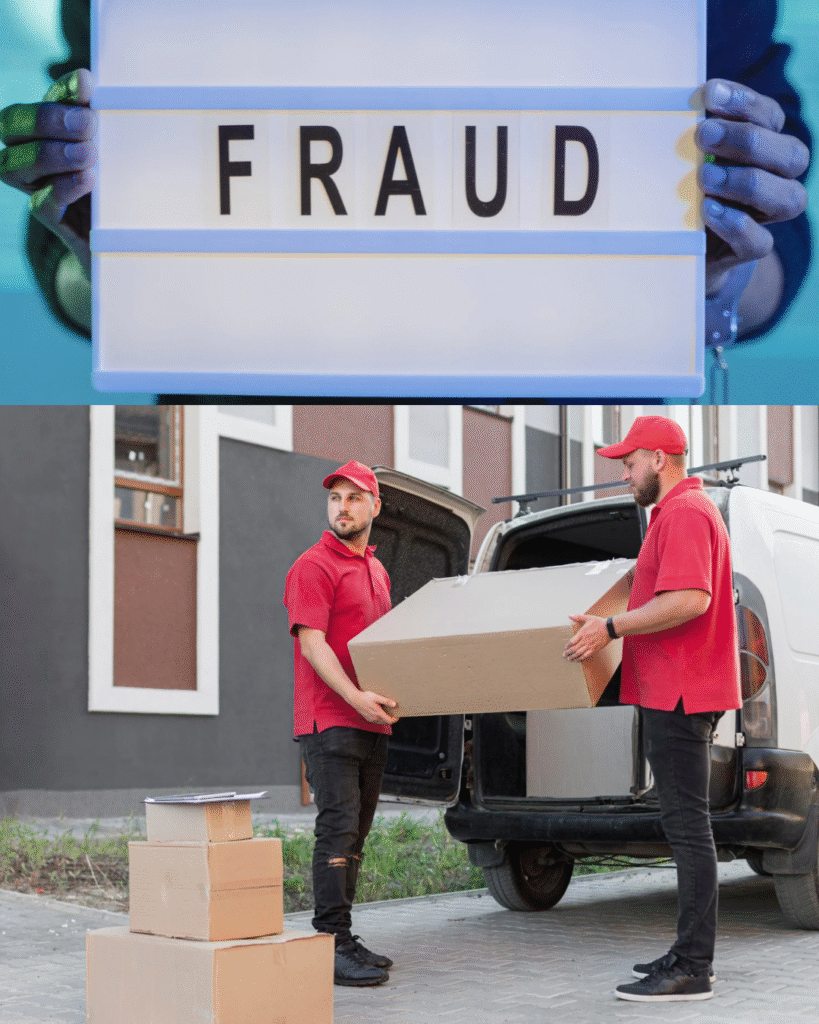
Relocating your home or office in Dubai is something many plan for with excitement—and rightly so.
However, there’s a darker side: moving company scams in Dubai are rising, with unsuspecting clients losing money, goods or both.
This blog highlights what you need to know: typical scam tactics, how to spot them, key precautions, helpful tips and how to protect your valuables and peace of mind during your shift.
1. Why Scams Happen in Relocations
Relocation involves many moving parts: trucks, labour, packing, routes, timelines. That complexity creates opportunity. In Dubai and the UAE more broadly, some firms (or pseudo-firms) exploit the rush to move, the need for convenience and the trust that clients place in “professional” services. Genuine moving companies invest in licence, equipment, insurance and reputation; scammers skip that, or mimic it superficially.
For example, one common scam: very low initial quotes to get your business, then added and hidden charges appear, or the goods are “held hostage” until you pay more. Recognising this early helps you avoid becoming a victim.
2. Common Scam Tactics to Watch For
Here are typical red-flags you’ll see when dealing with moving companies in Dubai:
- Extremely low quotes compared to market norms. If the price is “too good to be true,” it often is.
- Full payment required upfront, especially cash-only payments. Legit companies accept partial payment or payment after service from trusted method.
- No written contract or vague service terms. If everything is verbal, you have little to fall back on.
- No physical office, registration or licence provided. Some fly-by-night movers use fake addresses or none at all.
- Unmarked trucks, poorly trained crew, or hidden extra charges for “stairs”, “elevators”, “heavy items”.
- Goods held until extra payment is made (“hostage goods” scam) — the movers load your items then demand more money for delivery.
- Sudden price increases after move starts claiming items heavier/bigger than survey said.
3. Key Precautions to Take Before Hiring
To protect yourself, follow these precautions:
- Verify licence and registration — Ask the company to show official documentation and check with local regulators.
- Inspect physical office and fleet — Visit the company if possible; look at their trucks (branded, in good condition), equipment, staff professionalism.
- Get multiple quoted estimates — At least 2–3 companies, compare breakdowns of services, hidden costs, insurance etc.
- Read and sign a detailed contract — Should include scope of services (packing, loading, transport, unloading), cost, extras, insurance or liability, payment schedule.
- Avoid cash-only payment or full upfront payment — Ideally pay via traceable means (bank transfer, card) and only pay balance after delivery and inspection.
- Ask about insurance / protection for your goods — What happens if things are damaged or lost? If they can’t answer or don’t offer it, red flag.
- Check reviews and reputation — Online reviews, past client feedback, complaints. Be wary of companies with no reviews or only perfect 5-star reviews with no detail.
- Keep inventory list and photo record of items — Before move, document your items (especially valuables) so you have proof in case of damage.
- Keep communication in writing — WhatsApp chats, email quotes, contract scans. Avoid deals made purely verbally.
- Trust your instincts — If something feels off (aggressive sales pitch, pushy, vague answers) walk away.
4. Practical Tips & Hacks to Stay Safe
- Choose a moving slot off-peak (mid-week, mid-month) when demand is lower — less rush and you might negotiate better.
- Do basic packing yourself for smaller items; leave heavy furniture to the movers. This way you’re less reliant on the moving company for everything.
- Ask for a breakdown: how many labourers, hours, truck size, packing materials. A transparent company will explain.
- Ask for references – past clients whom you can contact (if provided).
- Insist on proper truck branding and staff uniforms, which often indicate a serious company rather than a lone “truck for hire”.
- If there are lifts/elevators or stairs, talk with the company about any extra charges and confirm in writing.
- Before the move day, re-confirm date, time and vehicle details. On the day, supervise the loading and check items off your list.
- After unloading, inspect everything before you pay final amount. If there is damage, note it on the delivery document.
- Keep copies of receipts, contract, payment proof — if something goes wrong you’ll need evidence.
- If something goes very wrong (company disappears, items missing), contact local consumers/relocation regulatory authority or file a complaint.
5. Summary
Moving is stressful enough — you don’t need to add the extra worry of being scammed. By understanding the common tactics used by scam movers in Dubai and applying your safeguards, you can significantly improve your chances of a safe, smooth relocation.
Always focus on integrity of the company you choose: their logistics capabilities, reputation, registration and transparency. Take your time, ask questions, get things in writing, and trust your gut. Protect your belongings, your budget and your peace of mind.


